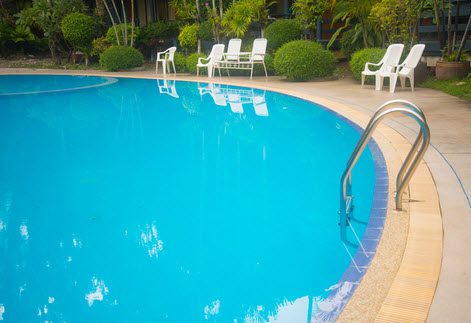Swimming is a fun outdoor activity that almost everyone enjoys. But it’s also a very dangerous activity. Unintentional drowning is the leading cause of death for children under 4, and in many other age groups, it is at or near the top.
Chlorine is a great chemical which is relatively safe to handle. It effectively cleans pool water and retards bacteria growth. But when mixed in the wrong amounts, chlorine can cause serious chemical burns. Even worse, if electrical equipment is not working perfectly, swimmers could be exposed to potentially lethal chlorine gas.
Even if there is a sign like “Swim at Your Own Risk,” the pool owner may be legally responsible for damages in these cases. These damages normally include compensation for economic losses, such as medical bills, as well as noneconomic losses, such as pain and suffering.
Public Pools in Florida
Twelve months a year, Floridians flock to indoor and outdoor heated and unheated pools. So, most serious injury or fatal drowning incidents occur at these places.
Large public pools usually have powerful drains and pumps. These devices can cause undercurrents which are hard to see and difficult to swim against. As a result, many swimmers are almost literally sucked underwater. And, it may be several minutes before anyone else notices.
So Florida law focuses on public swimming pool drains and pumps. These pools are in hotels, apartment complexes, housing developments, waterparks, and the list goes on. Public pool safety regulations include:
- Anti-suction vent which has a tamper-proof cover,
- Collector tank and gravity drainage system,
- Automatic pump shut off mechanism, and
- Drain disablers that are automatic.
Other public pool safety regulations concern the type and location of life saving equipment. All pools must have certain life saving tools, and these tools must be within easy reach of the water’s edge.
If the owner fails to adhere to these standards, and that failure substantially causes injury, the pool owner may be liable for damages as a matter of law.
Chlorine Gas Leaks
In a perfect world, electrical pumps deliver chlorine to the swimming pool water. This process creates no chlorine gas. But we do not live in a perfect world, and these electrical pumps often break down.
If the pump slows down or stops working, the chlorine reacts with the water and becomes gaseous. This gas remains in the pipe until someone restarts or speeds up the pump. That action releases a cloud of chlorine gas into an unsuspecting group of swimmers.
No one expects to inhale chlorine gas when they go for a swim. So, in these kinds of poisoning cases, the normal defensive doctrines do not apply in court.
There are other potential problems as well. As mentioned, if chlorine levels are too high, swimmers may suffer chemical burns. And, if the level is too low, dangerous bacteria may grow in the warm water.
Private Pools in Florida
Many municipalities have their own rules regarding fences and other swimming pool safety devices at residential pools. In the absence of such rules, the Florida Residential Swimming Pool Safety Act applies. Some highlights include:
- An unclimbable barrier must completely surround the water,
- The gate must have a self-latching mechanism that operates from the inside, and
- Doors or windows that open directly into the pool area must have alarms.
Even if an uninvited guest sneaks onto the property, uses the pool without permission, and is injured, the owner may still be liable for damages.
Connect with Dedicated Attorneys
Various laws keep swimmers safe at both public and private pools. For a free consultation with an experienced Brandon drowning lawyer, contact Reed & Reed. We have four area offices (St. Petersburg, Lakeland, Tampa, and Clearwater).
Resource:
leg.state.fl.us/statutes/index.cfm?App_mode=Display_Statute&URL=0500-0599/0515/0515.html
https://needreed.com/top-two-swimming-pool-drowning-causes-in-florida/




